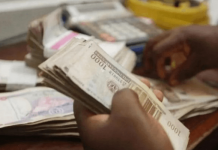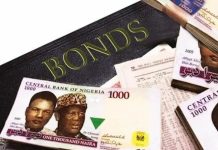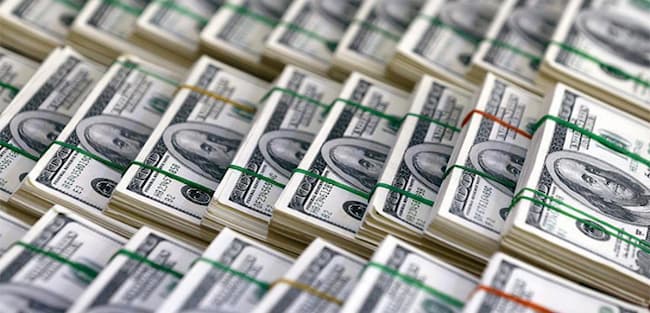The performance of the Nigerian naira is mixed, despite the fact that it has lost value on global currency exchange markets as a result of repeated capital flight from the country, despite assurances from the central bank regarding the soundness of the local currency.
The currency rate did, however, move upward after the close of business last week thanks to a modest improvement in the investors and exporters window. The top bank’s enhanced market involvement helped the naira strengthen.
According to statistics from the FMDQ Platform, a 60% rise in FX input into the official window in March also contributed to the gain. Notwithstanding that, the US dollar-to-Nigerian naira exchange rate surpassed N463 for the first time in 2023, crossing yet another line.
Foreign investors’ perceptions of Nigeria’s market conditions during the first quarter remained poor. Foreign currencies continue to be less liquid as a result of the absence of economic inflows from the pre-pandemic period, even if demand is still on the rise.
The top bank is under pressure to maintain the naira’s strength despite struggling to handle high FX demand and rising anticipation of an official devaluation. FX specialists and other international parties said that the depreciation of the naira will aid in luring foreign capital into Africa’s largest economy.
MarketForces Africa discovered that this will regrettably have direct effects on the local economy, including higher manufacturing costs and a decline in the buying power of local currency. The Central Bank of Nigeria (CBN) gave local deposit banks instructions in March to lower individuals’ business and personal travel reimbursements to ease strain on the country’s external reserves as it continues to hold foreign exchange auctions.
Since then, Nigerian banks have cut personal and business travel by half to $2000 as a measure to fulfill qualified foreign currency demand, diverting forex demand to the illicit market. Nigeria had a greater outflow of foreign currency from its external reserves during the CBN’s weekly FX market intervention; nonetheless, its gross balance fell to $35.38 billion.
The local currency edged over the US dollar in the just ended week on the parallel market, gaining N1 to close at N747 from N748. On weekly comparison, the Naira lost N1.87 to close at N463.25 from N461.38 at the investors’ and exporters’ FX window, in the face of the unabating FX pressure from manufacturing concerns.
A look at activities at the Interbank Foreign Exchange Forward Contracts market, the spot exchange rate remained unchanged closing at N462. Naira Lost 11% as Banks Issue New Update on FX Spending According to the data obtained from FMDQ, total inflows into the Investors & Exporters Window (IEW) rose by 59.2% month on month to $1.49 billion in March from $ 937.60 million in February.
On the one hand, local inflows increased by 46.9% in March to $1.20 billion primarily due to higher inflows from the CBN, up by 240.3% above February records.
Analysts said inflows from exporters grew by 7.2% in March and non-bank corporates popped higher by 50.9% above the level seen in February 2023. In a note, analysts at Cordros Capital said though foreign inflows rose by 2.4x to $291.90 million; remained significantly below pre-pandemic levels at a monthly average of $1.56 billion in 2019.
The weak FX inflow was attributed to liquidity constraints for foreign investors who want to upstream the US dollar abroad, an overvalued currency, and the absence of significant macro reforms.
“Over the short-to-medium term, we expect FX liquidity conditions to remain frail in the absence of reforms to attract US dollar inflows into the economy.
“The low FX liquidity conditions will also be driven by lingering global uncertainties and higher global interest rates, limiting foreign inflows to the economy. Thus, foreign investors will need some convincing actions as regards flexibility and clarity in the FX framework going forward”, according to Cordros Capital.
In the oil market, the crude price rebounded to $84.76 per barrel despite the production cut from major oil producers in the midst of confidence returning to the global banks and recession fears. However, Bonny Light crude price react positively, surging by 7.6% or ($5.61) week on week, to close at $86.80 per barrel from $79.57 per barrel in the previous week.
Nigeria’s naira is projected to trade in a relatively calm band across various market segments barring any market distortion in the face of the Naira scarcity and as the apex bank continues its weekly FX market intervention to defend the value of the naira.
















